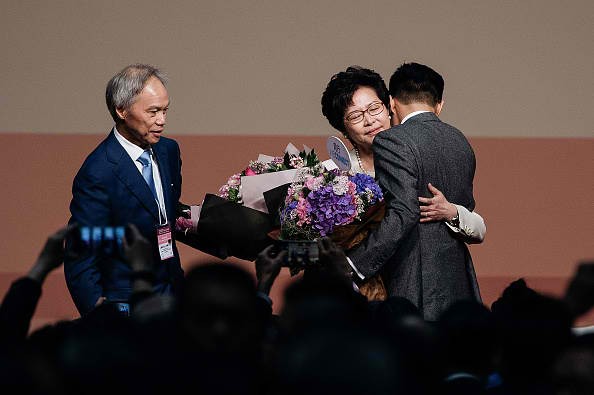Carrie Lam is the new chief executive of Hong Kong and was voted by a committee that was dominated by pro-Beijing officials.
Lam's victory was expected because the committee was composed mostly of officials who were believed to be supported by Beijing. The turnout was 67 percent of membership composed of 1,194 voters.
The other two candidates, John Tsang, received 365 votes, or 31 percent; retired judge Woo Kwok-thing had 21 votes.
Based on opinion polls, Lam had a very poor approval rating from the public.
Pro-democracy activists went to the streets as soon as the results were announced. The activists said that the elections were fake.
The protesters also demanded that the elections be open to the 3.2 million citizens of the region.
Mabel Yau, one of the hundreds of protesters, said, "China promised that Hong Kong people would run Hong Kong. Today, only 1,200 people are representing us in electing the chief executive. Is it fair?"
Protesters also believe that there will not be any change because Lam's leadership will be the same as her predecessor's.
"When the No. 2 official becomes the No. 1, there isn't going to be much change," said Joshua Wong, one of the protest organizers.
"One country, two systems are going down the drain, and our high degree of autonomy will exist in name only," he said.
Lam sees that she is not popular with the public and said that she will have to work harder to unite the very divided region.
"My priority will be to heal the divide and to ease the frustrations and to unite our society to move forward," she said at a news conference.
She also said that she will revive the talks on establishing a public electoral system and focus on education, health and housing.
"There is a serious divide in Hong Kong, so why don't we start with the easier subjects and try to reach consensus," she said.



























